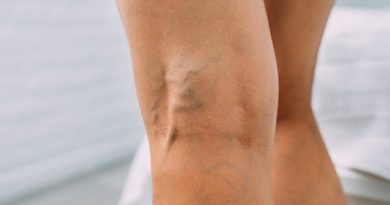There are many different treatment options for depression, including medication, psychotherapy, electroconvulsive therapy (ECT), Deep Transcranial Magnetic Stimulation (Deep TMS™), and deep brain stimulation (DBS). Each treatment option has its benefits and drawbacks, and the best treatment for an individual will depend on their specific needs and circumstances. Today, we’re going to explore the five most commonly employed treatment options, notably medication, psychotherapy, ECT, Deep TMS, and DBS. We will then see how TMS treatment compares to all of these options and why it is increasingly being selected as the preferred option.
- Medication: Antidepressant medication is a commonly used treatment for depression. These medications modify chemical levels in the brain, including serotonin & norepinephrine. These are thought to be responsible for regulating mood. Typical types of antidepressants include SSRIs and tricyclic antidepressants, known as TCAs. Medications can be highly effective in reducing symptoms of depression, but they can also have side effects and may not be suitable for everyone.
- Psychotherapy: also known as talk therapy, is a form of treatment that involves talking to a therapist or counselor to help individuals understand and manage their emotions, thoughts, and behaviors. Several forms of psychotherapy, such as cognitive-behavioral therapy (CBT) and interpersonal therapy (IPT), have been shown to be effective in treating depression.
- Electroconvulsive therapy (ECT):ECT is a medical depression treatment option that involves the application of electric currents to the brain to cause seizures. It is usually employed for individuals who have not responded to other forms of treatment, such as medication and psychotherapy. ECT is thought to work by altering the levels of certain chemicals in the brain, such as neurotransmitters.
- Deep TMS:Deep TMS is a sophisticated form of neurostimulation that uses magnetic fields to stimulate specific brain areas. This version of TMS is more concentrated, clinically-backed for its safety and efficacy, and targeted at problematic regions of the brain thought to be responsible for depression. It uses a patented H-Coil instead of the Traditional Figure-8 Coil found in other systems. It is a noninvasive treatment that does not require surgery or anesthesia and is typically done on an outpatient basis.
- Deep Brain Stimulation: DBS is a surgical procedure. This treatment requires implanting electrodes into specific parts of the brain. The electrodes are then connected to a device that sends electrical impulses to the brain, which can help to regulate mood. DBS is typically used for individuals who have not responded to other forms of treatment, such as medication and psychotherapy. It is a highly invasive procedure that requires surgical intervention and a lengthy recovery period.
It’s worth noting that the best treatment for depression will depend on the individual and their specific needs and circumstances. Some people may find that medication is the most effective treatment, while others may respond better to psychotherapy or other forms of treatment. Working with a mental health professional to determine the best treatment plan for you is essential. The overarching goal is mental health and wellness for everyone.
How Deep TMS Compares to the Rest
Deep TMS for depression, also known as Deep Transcranial Magnetic Stimulation, is demonstrated to be clinically safe and effective, and well-tolerated treatment option for people with common brain disorders such as depression. The treatment employs magnetic coils to target neural networks in specific areas of the patient’s brain thought to be involved in addiction and mental health disorders.

Corporate Wellness App
CircleCare
Unlike other treatments for depression, Deep TMS does not involve surgery or medication, making it a noninvasive, non-surgical treatment option. This means there is no risk of infection associated with the treatment, and patients can return to their normal activities immediately after the session.
One of the main differences between TMS treatment and other depression treatments is the limited side effects. Unlike medication, which can have many side effects, TMS treatment is typically well-tolerated and doesn’t cause long-term side effects. Additionally, the treatment does not require admission to a hospital or anesthesia, making it a more convenient option for patients.
Another critical difference between TMS treatment and other depression treatments is the high efficacy of outcomes. The treatment has been proven effective in numerous sham-controlled and open-label clinical studies.
It’s Non-Medicinal, Non-Surgical, and Low-to-No Risk
Deep TMS treatment is also a non-medicinal approach, which means it does not have the risk of drug interaction or addiction. Also, the treatment is not painful and does not require any sedation. It is a comfortable, non-invasive and non-surgical procedure that can be done in the healthcare provider’s office.
Overall, Deep TMS for depression is a safe, effective, and well-tolerated treatment option for people with common brain disorders such as depression. In addition, the non-invasive, non-surgical approach and limited side effects make it a desirable option for patients.
The high efficacy of outcomes makes it an effective treatment option for those who have not improved from other treatments. In addition, it is a non-medicinal, non-painful, and non-surgical procedure that can be done in the healthcare provider’s office, which is a great advantage for patients.








